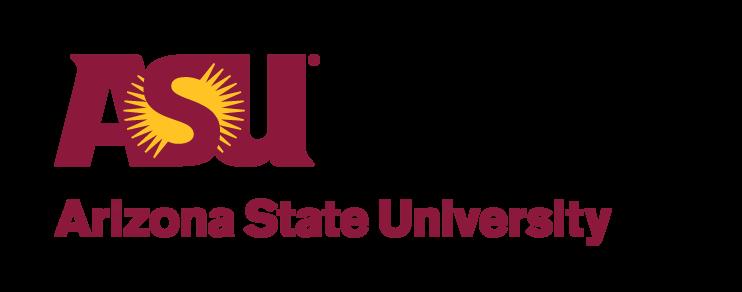
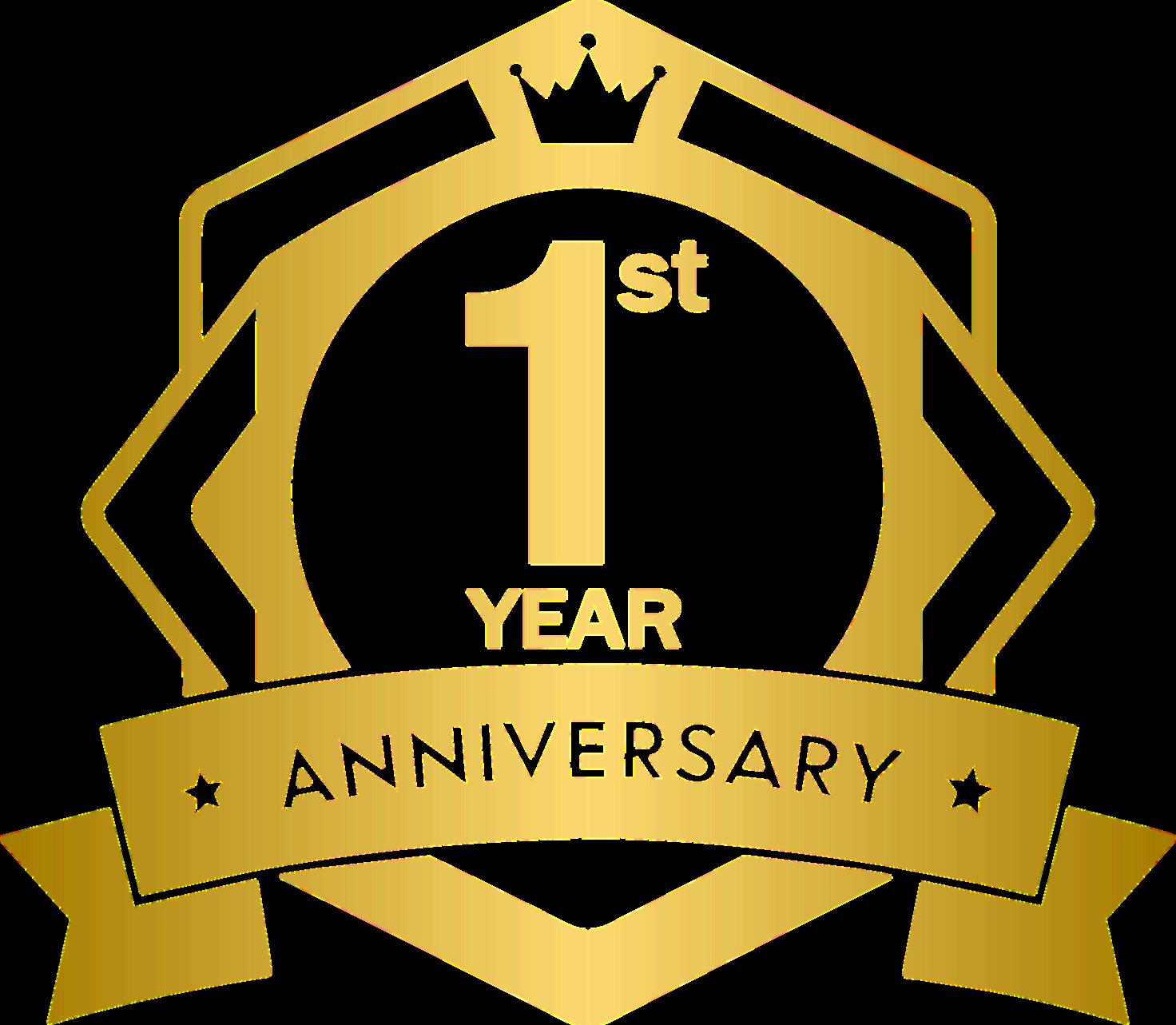



To cultivate futureskills,technologies,andcareers that will lead to positive social impact in Arizona and beyond.
We boldly imaginenewcurriculum and co-createequitablefutures with diverse learners, educators, industry, technology, and our global society.
Mission
ExploringEmergingTechnologies: We relentlessly explore the frontiers of emerging technologies, unlocking their potential to transform the world.
CultivatingFuture-ReadySkills: We empower individuals with futureready mindsets and hard skills to thrive in an ever-evolving technological landscape.

ActivatingInterdisciplinaryCollaboration: We foster a culture of collaboration, bringing together diverse minds to innovate and solve complex challenges.
Valuesandvision

At Next Lab, we believe that our values are the driving force behind our vision Our commitment to innovation, collaboration, and community engagement shapes what we do and how we do it. By placing our values at the forefront, we ensure that every project we undertake, every partnership we form, and every solution we create is grounded in principles that foster growth and making a positive impact on society.
Weenvisionfuturesthataremore acrosstheglobe
Wherelearnersaren’tjustparticipants,but oftheireducation Drivenby





Dan Munnerley Dr.Bea RodriguezFransen
ExecutiveDirector



ProgramCoordinator

ProgramCoordinator

At the heart of Next Lab are our extraordinarystudentassociates: creative thinkers, problem-solvers, and leaders who drive the innovation you see across our projects. These talented students come from diverse disciplinesandbackgrounds, bringing freshperspectivesandtechnicalskills to every challenge. Whether developing immersive experiences, building digital twins, or prototyping AI tools, they are the ones imagining and realizing the future. Their passionandingenuity are what make Next Lab a vibrant engine of innovation.

At the Next Lab, we hire Studio Associates from across the university, encompassing undergraduates to doctorate-level students, to form teams with a range of life experiences We value creative thinking, skill, and background, as it fosters richer ideation and creativity, which is highly valued by our partners. These partners include local government, large tech companies, and ASU faculty and staff, who support our associates through their grants and research funding.
36
in 2024-25
2 Coordinators
6 Leads 28 Studio Associates
Funded by partners & grants







Our organization operates a studio model similar to an 'indie' gaming studio or design house We collaborate with partners to ideate using the latest technologies and skills We assist our partners in budgeting and planning collaboration agreements that transform initial ideas into viable projects. Students from specialized skill guilds are then engaged to lead these projects, ensuring the delivery of critical milestones under the supervision of our project managers and subject matter experts.
The Next Lab operates with a mixed funding model. Our projects are financed through a combination of grants and industry partnerships, while our core team of five full-time employees is supported by the Office of the CIO. To ensure the lab's long-term sustainability, we prioritize fundraising and aim to diversify our revenue sources to meet our future needs comprehensively
At Next Lab, we recognize that the dynamic interplay between academia, industry, and emerging technologies shape the skills of the future. By partnering with industry leaders, vendors, and academic institutions, we create a robust ecosystem that drives innovation and discovery in skill development, resulting in future-ready careers
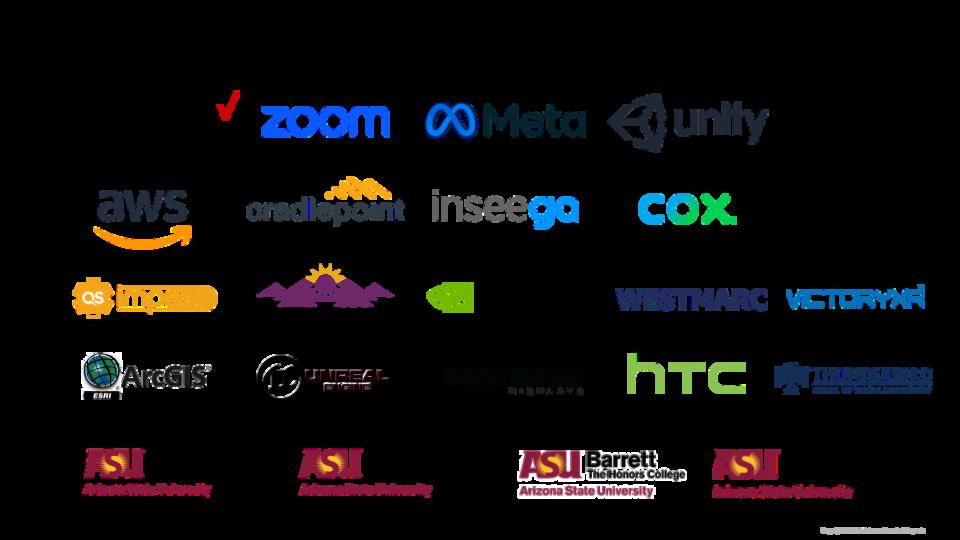



































We focus on AI, game technology, and spatial computing because their convergence is reshaping the future of how people live, work, and learn. AI enables systems to adapt and respond intelligently, game technology delivers interactive and engaging experiences, and spatial computing bridges the gap between digital content and the physical world.
By integrating these technologies, we can create more personalized learning environments, immersive storytelling, and high-fidelity simulations. This powerful combination unlocks new possibilities across sectors, from transforming healthcare and workforce training to advancing IT systems and reimagining entertainment.

Machine Learning, Computer Vision, Speech Processing, Privacy-First, Offline AI
Adaptive Intelligence

Smart Cities & Digital Twins
Gamified Smart Environments

Game Engines, Graphics and Rendering, Audio, Physics, Cloud Computing and Multiplayer, Input handling, Animation, UI/UX, Game Logic, Scripting, Mechanics and Strategy
Immersive experiences & simulations
3D Visualization and Mapping, Sensors, Augmented Reality (AR), Virtual Reality (VR), Geospatial Technologies, Digital Twins, Interaction Design, Wearables
Our approach equips learners with tools for anticipating change, preparing for future scenarios, and learning from past events, enabling them to thrive in a complex and unpredictable world.

Signals of change, foresight/insight, pattern recognition, and looking back to look forward techniques equip organizations to anticipate change, prepare for future scenarios, identify trends, and learn from past events, fostering informed decision-making and strategic adaptability in an ever-evolving landscape


Responsible innovation fosters anticipation, reflexivity, inclusion, and responsiveness, enabling us to proactively address challenges, continually improve, embrace diverse perspectives, and adapt swiftly to ensure ethical, effective, and sustainable solutions.

Quantum cognition leverages embodied learning and sensorimotor systems, recognizing neurodiversity and transforming education by valuing physical interaction and diverse cognitive approaches. This fosters deeper understanding and inclusivity, challenging traditional views that often prioritize abstract, uniform learning processes.

Heutagogy, self-efficacy, meta-cognition, self-determined, and rhizomatic learning empower 21st-century learners by fostering autonomy, reflective thinking, and adaptive, interconnected knowledge These approaches align with the demands of our information-rich world, enhancing lifelong learning and problem-solving skills.


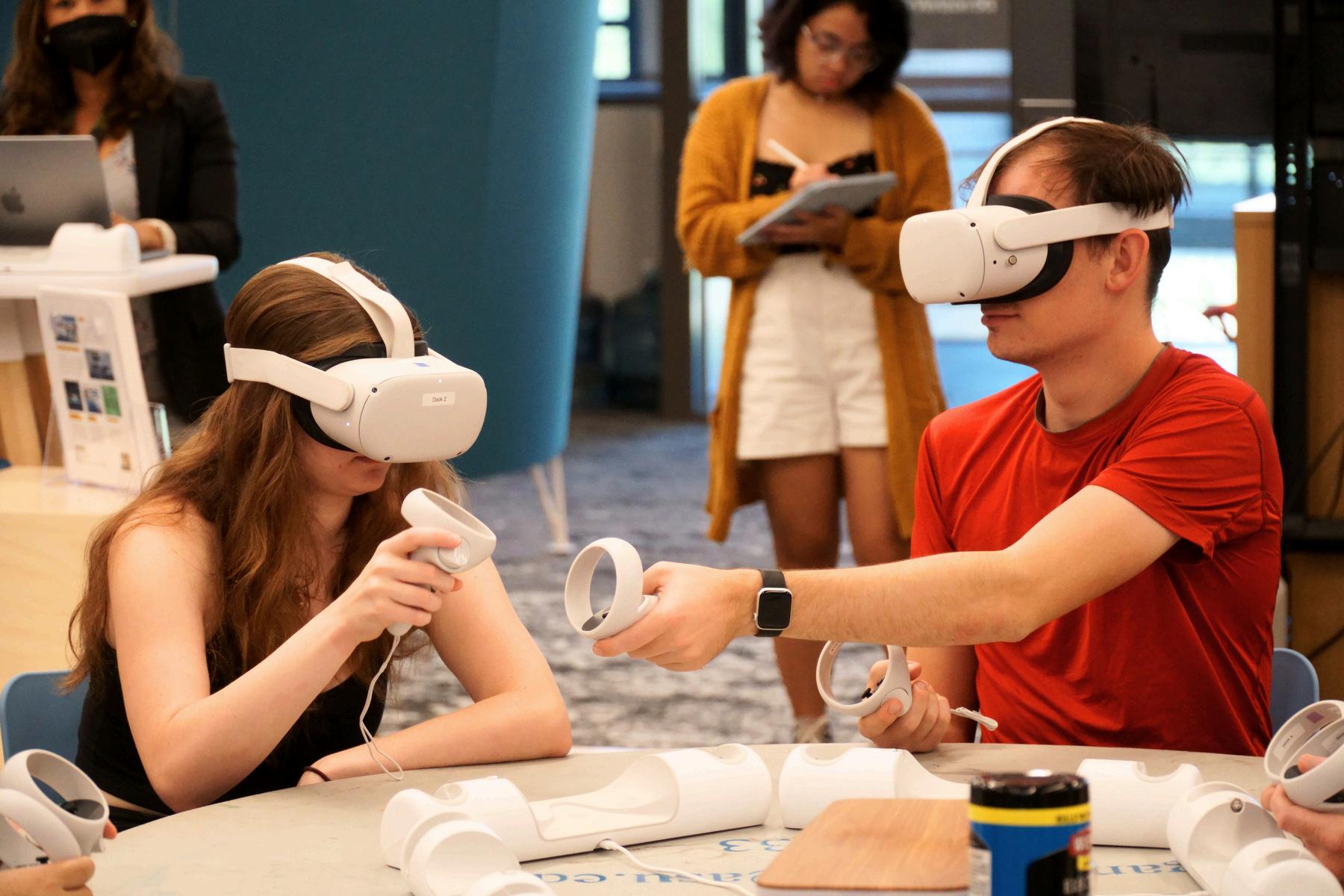


















Zoom Fellows mentor at Spark Challenge


Next Lab Hosts Beat Saber Fundraiser for United Way


Next Lab Launches Inaugural Zoom Fellowship



Offline AI at FOLC Fest

Mayo Clinic+Next Lab Partner on VR, AI, Medtech

Dan Munnerley Panelist at QS Impact Skills Challenge
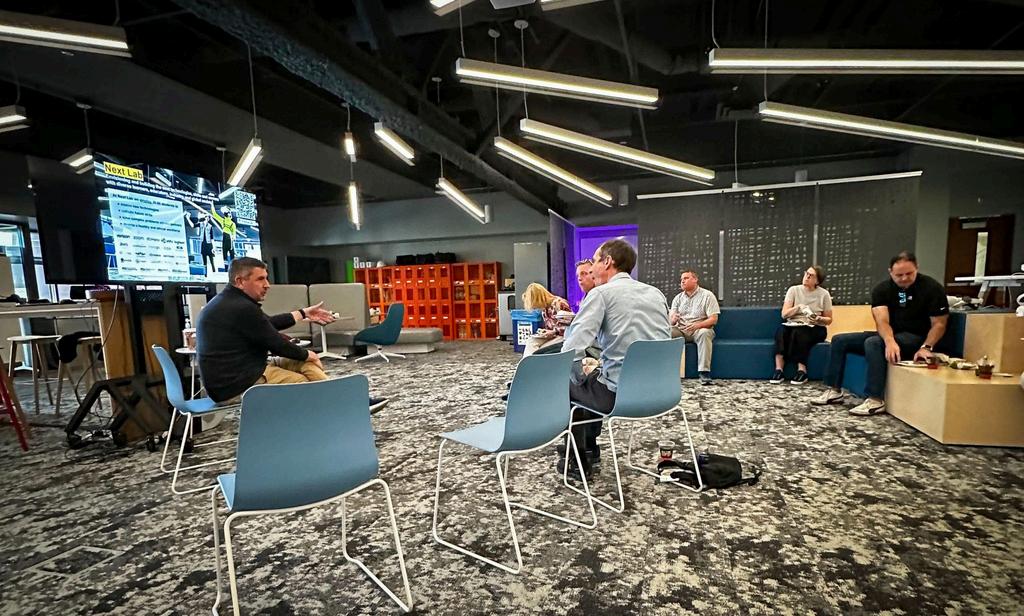
Oregon State University and NVIDIA Visit Next Lab



Immersive Language

Enabling Future17 to Address SDGs

Next Lab Panel at Arizona Leagues of Towns and Cities

University from South Korea

Meta Education Summit

Dan Visits UN signing of Global Digital Compact

An-Najar National University in West Bank visits Next Lab

Next Lab Joins Meta for Education Beta Program

Texas State University and Con-Real LLC Visit Next Lab

Next Lab presents at VRARA Education Summit

Next Lab at Enterprise Technology’s Engage Expo













Tours and visitors to Next Lab
CityofSurprise, Economic Development
Jeanine Jerkovic, Kristin Tytler, Kimberly Campbell, Seth Dyson, John Melton, Virginia Mungovan
TheConnective, Partnershipfor Economic Innovation
Jake Taylor, Ben Williams, Luke Macy
An-NajahNational University(15)
Marc Neveu, Philip Horton
ASUPrepToursand VirtualCampusTours (20)
Marc Neveu, ASU Prep students
CanonTour
Andrea Rai, Paul Murphy, Jeff Palm
CoxScience Center&Aquarium (10)
Representatives from Cox Science Center & Aquarium
HoseoUniversity Younghwan Cho, Kyoung Dae Kwak, Youngsun Kim
LatinAmericaand EuropeContinuing Education Network(35) Network members from Columbia
NetInclusion Summit(15) Attendees
DesignThinking+Next LabVisit RJ Millhouse, ASU design students
DeloitteVisits
Joseph Conti, Mark Masone, Ryan Sullivan, Bus Obayomi
DreamscapeDesign TeamVisit(30)
Dreamscape Learn design team members
ExperienceCenter Supervisor(8) Experience Center staff
Departures
Aviation Gary Nunley
FSE/SmartRegion Summit Teresa Wu, Tiffany Lehn
EIGamesFounder Visit Kevin Allen, Daniel Allen
IgloovisionVisit Sean Snitzer, Mike Grasso, Theo Penty, Rebecca (Bex) Wade
ImmersionED (10) Charles Wilson (Founder, ImmersionED) and team
GoogleEducation Google Education team
ImmediaTech
Representatives from Immedia Tech
Intel,VIA,FSE DigitalTwin InstituteVisit
Various
Gov NonProfit/ Edu ASU
NVIDIA+Oregon StateVisit
Belinda Batten, Peter Betjemann, Peter Swendsen, Steve Niemi
RMITUniversity
Anita Kocsis, Alec Cameron
Futurist Communityof PracticeMeetings
ASU faculty and industry partners involved in future technologies
GlobalLaunchVR Language Learningclass Instructors and students
SheridanCollege
Jock Phippen, Mark Jones, Paul Grossman
TexasSouthern University
Michelle PennMarshall, Erin Machac, Kelly Colna, Melvalean
McLemore, Reggie Miller
TexasState University
Sean B Justice, Khoi
H Nguyen, Kevin Huffaker
Universidad AutonomadeMadrid and EspaciosMaestros
José Diez, Sonia Diez
Universityof HiroshimaUniversity
Shunsaku
Komatsuzaki, Masaki
Ogura, Mahiro
Numata, Mei Seihara, Kazuya Tanaka, Rentaro Konishi, Wakako Shimizu, Konomi Ogawa
Universityof Toronto
Donna Kidwell
Mastercard Foundation Mastercard Foundation representatives
MayoClinic Dr Hoerth (Mayo Clinic)
HaydenLibrary tour ASU Library team
PAF547classvisit toCreativity
Commons
Cecilia AlcantarChavez, students from PAF547
MetaEducationVisit Ericka, Nikki Staubli
MicrosoftVisit Ajay, Microsoft team members
Production4K
John Koop, Hans Lankhaar
Sony/Toyota/Gran TurismoProject Team
John Pierce, Connor Rawls, Kelly West, Pavan Turaga
Terria Amber Standley, Ana Belgum
SawhorseVisit Caragh McErlean, Mariah Sharp, Eben Kostbar, Nic Hill
Steelcase
Ed Vanderbilt, Tyler Coniam
VerizonVisits
Joseph Terrazas, Global VP for Custom Solutions
Vimbal.ai
Joshua Arnall, Jose Herrera Perea, George Davis, Mark Luhovy, Dan Flanegan
Tours and visitors to Next Lab

Schedule a visit to Next Lab
Built by studio associates

Partner: Matterport Inc , ASU Enterprise Technology
Led by Afghan Scholars in collaboration with Next Lab during Fall 2024, Project Acacia explores using 3D technologies to create high-fidelity digital twins of real-world environments These 3D, interactive models enable stakeholders to explore, analyze virtually, and plan spaces, with applications in urban planning, retail attraction, and infrastructure development

Client: Internal
Our Project Aqua focused on combining ArcGIS data with the Cesium platform to create web-based digital twins for cities and areas in Maricopa county Building on that foundation, Project Apricot-Terria will migrate the existing Cesium-based digital twin to a new platform: Terria. This transition aims to take advantage of Terria’s strengths in rendering, data visualization, and user interactivity. The updated digital twin will be deployed and hosted on AWS.

Partner: ArcGIS Storymaps, AZ-1, ET Community Partners
Featured on the AZ-1 web portal, this project highlights the impact of broadband internet access on education, business, and wellness in Maricopa County, Arizona. It combines interviews, written articles, and geospatial mapping to share stories of community members benefiting from having broadband access, such as telehealth and 5G technology for startups Readthestorieshere.

tner: Digital Discovery Initiative
xt Lab is partnering with the Digital Discovery Initiative (DDI) to employ r interns to help bring scientific research to life through immersive VR e DDI team is using Unity and the Dreamscape Learn SDK to create ious builds such as the cratered surfaced of the moon and the Antarctic tundra that transform virtual environments into frontiers for discovery and exploration in collaboration with various industry partners
Built by studio associates

Client: Julie Ann Wrigley Global Futures Laboratory
Following successful funding this year, the ASU Virtual Campus, including the Impact Water spaces, launched to the broader ASU community. Built on the Engage XR platform, this metaverse space now enables experimentation with advanced AI avatars and immersive 3D environments.

ent: City of Surprise, Westmarc
rlier this year, the digital twin of Elm Street at Surprise City Center nsitioned successfully to the City of Surprise Economic Development
m Since the handover, we've jointly presented at conferences and sted city tours at ASU The digital twin features ESRI-integrated datasets and an immersive, walkable Elm Street experience designed to attract investors and engage residents in exploring this vibrant new hub

U Global Futures Lab, Arizona Corporation Commission
smission Futures project utilizes geospatial technology to map power infrastructure for the next decade By transforming static s into interactive, georeferenced datasets, the project has the Arizona Corporation Commission (ACC) with enhanced tools ting current and planned transmission lines and power stations This improved visualization has informed the ACC's decision-making process, shaping future infrastructure proposals and energy planning


t: Newswell
sWell is a digital-to-print innovation project to enhance workflows for newsrooms through automation. The project focuses on integrating o WordPress (via Newspack) and expanding it to support multi-page cations, ad placement, and editorial templates. The team is modifying and developing a WordPress plugin that streamlines the publishing pipeline from digital content to print-ready layouts,
Built by studio associates

artner: Mayo Clinic
he Mayo Clinic project is a collaboration between Next Lab and Mayo linic focused on developing a hyper-realistic, interactive training latform for stroke assessment using immersive technologies By combining detailed 3D virtual patient models, advanced facial motion capture, and immersive interaction through hand-tracking and voice recognition, the project closely mirrors real-world clinical scenarios Guided by Mayo Clinic physicians, the platform is built around the official National Institutes of Health Stroke Scale (NIHSS), enabling learners to practice diagnostic skills in lifelike environments and receive immediate, data-driven feedback on their performance


Partners: Anthropocene, Turn It Around, Create the Change
Activated by a Create the Change grant and partnered with the physical theatre production Anthropocene and Turn it Around cards for climate change, Next Lab is creating a 3D immersive experience featuring 3 environments connected to the present and future of climate change: Utopia, Dystopia, and the Present. Incorporating themes from Anthropocene and Turn it Around, the experience encourages meditation and introspection as users explore the different environments, examine select Turn it Around cards, and consider the possible outcomes of our current actions regarding climate change. Seven K-12 lesson plans were also created to go along with the experience.

Client: SRP, Educational Outreach and Student Services, ASU Prep
Futurescape, a virtual career exploration game for middle schoolers, launched this year to over 600 students at ASU Prep The experience includes interactive mini-games across 15 STEAM careers, including marine biology, manufacturing engineering, and forensic science

Partner: Next Lab, SolarSpell, N50
Imagine a helpful tutor that speaks your language, answers your questions, and never needs the internet. That’s the idea behind EDge AI.
► Watch the video on YouTube
We’re using a powerful AI tool developed by Meta, called Llama, and adapting it to work on small, affordable devices like older smartphones or mini-computers. This means students in remote or underserved communities, where internet access is limited or nonexistent, can still benefit from intelligent, interactive learning tools--completely offline
We’re also working with solar-powered digital libraries like ASU’s SolarSPELL, adding our smart assistant to help students navigate learning materials more easily just by asking questions It works without using data or needing a constant connection, making it cost-effective and energy-efficient
By bringing these tools to places that traditional education can’t always reach, EDge AI helps make high-quality learning more inclusive, equitable, and sustainable for everyone, everywhere


Partner: City of Surprise, Mayo Clinic, Arizona Corporation Commission, Global Futures Lab
Imagine exploring a city before it’s built, walking through a historic site from your home, or designing a better community space, all in 3D That’s the power of digital twins
► Watch the video on YouTube
At ASU Next Lab, we’re creating immersive digital replicas of real-world places using tools like Cesium, Sketchfab, and Matterport. These interactive environments help city leaders, planners, and communities visualize change, share stories, and make smarter decisions about development, design, and sustainability.
Our student team is building digital twins of emerging downtowns, cultural landmarks, libraries, and more, transforming how we plan, preserve, and promote the spaces that shape our lives.
By combining immersive tech with community storytelling, we’re making digital twins a practical tool for engagement, investment, and inclusive innovation across Arizona and beyond.

Workshops, events and partnerships
Zoom: Inaugural Zoom Fellowship

As part of ASU Next Lab’s partnership with Zoom, we launched the ZoomFellowshipprogram. Studio Associates Liam Wirth and Neha Kashyap are the first Fellows, creating innovative tools to reshape education They’ve mentored students in two Zoom Spark Challenges, offering feedback and code reviews. This one-year fellowship is part of a five-year partnership and will grow to include four fellows by 2026.
Next Lab is collaborating with the Institute for Digital Inclusion and Access (IDIA) to organize and facilitate various tech workshops at IDIA Hive community centers around the valley Workshops range from a variety of topics and different age groups, including worldbuilding in Roblox Studio for elementary students and VR health and wellness for seniors.
Next Lab enhances the ASU community and beyond through workshops that promote long-term thinking and equip participants with foresight methodologies and skills, including signals of change, scenario building, futures triangle, and futures wheel. By applying these tools, participants gather diverse insights to aid strategic planning and innovation efforts. By anticipating and imagining alternative scenarios, individuals and teams can navigate an increasingly complex and uncertain world, proactively shaping more just and sustainable futures
In collaboration with Enterprise Technology’s organizational development staff and ASU stakeholders, Next Lab is developing an Upstander Program, featuring the Upstander Ally bot, which serves as a resource for ASU staff and faculty This initiative promotes a healthy workplace by providing resources and a community to transform bystanders into upstanders. Upstanders proactively address and respond to problematic behaviors or events, using their voices to stand up for justice and community well-being. Aligned with ASU’s principled innovation design aspiration, this pilot program fosters a culture of empathy, inclusion, and collective responsibility
Workshops, events and partnerships
“This event was a perfect example of how creativity and community come together at Next Lab, ” Grace O’Sullivan
Studio Associates from ASU's Next Lab Digital Storytelling guild turned virtual rhythm gaming into real-world impact with a Beat Saber tournament fundraiser for United Way.
Participants donated to enter the VR rhythm game challenge, slicing beats to compete for top scores and prizes. The event raised $604 for the ASU Gritty Scholarship through the United Way Campaign, supporting students balancing academics and employment.
Top scorers received tech prizes:
1st Place: Jesus Franco Yescas – Wacom Intuos Drawing Tablet
2nd Place: David Pearce – Logitech G230 Gaming Headset
3rd Place: Cami Keck – Ultimate Ears Speaker
4th Place: Elizabeth Leung – Razer Kiyo Camera and Light


Workshops, events and partne ships

Over the past year, Next Lab has played a pivotal role in advancing the QS ImpACT Skills Challenge, a global initiative that empowers youth to design digital games addressing the United Nations Sustainable Development Goals (SDGs) In 2024, Next Lab collaborated with QS ImpACT to design and pilot the inaugural Games for Impact Skill Challenge, providing expertise in game design, sustainability education, and experiential learning. This partnership laid the groundwork for the 2025 edition, which saw significant growth in participation and impact.
The 2025 QS ImpACT Skills Challenge brought together over 210 youth teams from more than 45 countries and 70 universities, culminating in 21 high-impact finalist games. The competition featured two tracks: Beginner (No-Code) and Advanced (Coding).


BeginnerTrackWinner
Country: Finland
University: Metropolia University of Applied Sciences ►PlaytheGame AdvancedTrackWinner
Country: Colombia
University: Universidad Militar Nueva Granada
►PlaytheGame





















Dan Munnerley and Dr. Bea Rodriguez-Fransen, Ed.D. represented ASU Next Lab at the inaugural Meta Education Summit, participating in a panel on open source AI and VR in education and sharing our student-led model, ethical and sustainable futures and the use of Llama AI for offline capabilities to help bridge the digital divide
Dan Munnerley attended the United Nations' Summit of the Future, where the adoption of the Global Digital Compact, a key component of the Pact for the Future was accepted The pact focuses on emerging technologies like AI, closing the digital divide, and ensuring digital advancements benefit everyone. We presented EDge AI to various attendees and chairs of UN committees, which resulted in new partnerships with MenteeGlobal and N50 - AI for All.
Dr. Bea Rodriguez-Fransen conducted two workshops for faculty, staff, and students: ‘7 Generation Principle for Higher Ed Leaders: An AI-Augmented Futures Wheel Workshop’, featuring the Futures Wheel Bot created in ASU’s MyAI Builder as part of the AI Innovation Challenge; and ‘Bystanders to Upstanders: Disrupting Workplace Bullying in Academia’, featuring the Upstander Bot, a resource for ASU staff/ faculty
Next Lab was invited to the XR Southern Summit and Dr Bea Rodriguez-Fransen represented as a plenary speaker Her talk explored how ASU Next Lab anticipates change, empowering the next generation of innovators with future skills and emerging technologies through collaboration between academia, industry, government and students. The national summit brings together presenters and educators to showcase XR within universities, in industry fields, and in student involvement.
Next Lab showcased EdgeAI (offline, low-power, low-cost AI), along with our work in spatial computing and digital twins Dr Bea Rodriguez-Fransen collaborated with Dr RJ Millhouse, Assistant Professor at The Design School, and Rubi Trujillo, an Architectural Studies student and Design Justice Initiative member, to facilitate a workshop on Design Justice in Higher Education, exploring how design justice principles can be used to analyze or co-design learning products, experiences, or systems.
Dr. Bea Rodriguez-Fransen and Dan Munnerley were featured as speakers at ASU’s Smart Region Summit on March 4, 2025. Rodriguez-Fransen served on a panel on Indigenous Communities and Social Impact, exploring the use of digital twin technology among Indigenous communities and discussing issues around capacitybuilding, digital sovereignty, and ethical frameworks. Munnerley was a panelist for the Education and Workforce Development stream, delving into the use of digital twin technology and AI to enhance education and workforce development by creating immersive learning experiences, improving training outcomes, and better aligning educational programs with industry needs
Dan Munnerley and Dr. Bea Rodriguez-Fransen participated in the 100Yr EdTech Summit in San Antonio In addition to serving on the design committee, Dr Bea Rodriguez-Fransen authored and collaborated with StoryCenter to produce the future scenario “Declaration Day: A ‘Major’ Reset” which was voted by the public as a top scenario. She co-facilitated design sessions inspired by this scenario alongside University of San Antonio’s Vice Provost for Student Success, Dr. Tammy Wyatt. Together, they worked with professionals and students from various parts of the country to boldly imagine education fifty years from now
Dan Munnerley represented ASU Next Lab at THE AI SHOW @ ASU+GSV, showcasing our Edge AI project: AI at the edge, built to serve learners in remote, rural, and underserved communities around the world, proving that AI can empower everyone, everywhere.
ASU Next Lab Executive Director Dan Munnerley, along with Studio Associates Hithesh Rai Purushothama, Ananya Kodali, Hrushikesh Milind Pandit and Sahil Garg, showcased a poster at the inaugural LlamaCon on their efforts to fine-tune Llama models for offline use on low-powered devices bringing AI to remote areas without internet or power. At the convention, we were able to connect with other developers tackling realworld challenges in constrained environments and demonstrate what’s possible when we work with open-source models that can be distilled, optimized, and deployed locally at the right scale.
Next Lab Program Coordinator Jesus Franco Yescas, Senior Studio Associate Viresh Bhurke, Director Dr. Bea Rodriguez-Fransen, and City of Surprise Economic Development Director Jeanine Jerkovic presented a case study, “The Digital Twin of Surprise, AZ: Innovating Urban Planning and Investment Through Advanced Visualization.” The project informs and inspires more than 100+ city officials from across the nation to learn more about digital twin use cases for their communities. In another session, Dr. Rodriguez-Fransen facilitated a workshop, “Seven Generations Thinking in Local Government: A Workshop on AI-Augmented Foresight, ” that provided hands-on experience on using the Futures Wheel, a foresight method that facilitates long-term thinking, systems thinking, and collective sense-making
Dr Bea Rodriguez-Fransen was invited to speak at the EDUCAUSE Summit on “Leveling the AI Playing Field: Expanding Access and Opportunity for All,” how to ensure equitable access to AI tools and resources for all students, faculty, and staff, and “Change Management Approaches, Strategies, and Cases,” highlighting effective change management strategies that support AI adoption and transformation initiatives.
Dan Munnerley participated in the 2025 GlobalMindED Conference in Denver, where he hosted a panel titled "Emerging Technology Through Student-Led Innovation. " The session highlighted Next Lab’s work in gameful design, AI, and spatial computing, emphasizing how student-driven innovation can shape the future of STEM education and career pathways Munnerley was joined by thought leaders Amanda C , Dr Kenya Oscar Radoli, Linda Van Doren, and Andrés Quintanar, fostering a dynamic discussion on the transformative potential of student-led initiatives.
Dan Munnerley participated in a dynamic panel at the 2024 QS Reimagine Education Awards in London, hosted by QS ImpACT. Munnerley shared insights from Next Lab's collaboration with QS ImpACT on the Games for Impact Skills Challenge, which involved over 210 youth teams from 45 countries, creating impactful digital games addressing the UN Sustainable Development Goals. The panel emphasized experiential learning, digital innovation, and youth-led solutions for global sustainability challenges
TAMAC supports members in developing artistic and technical skills through weekly meetings focused on 3D tools, workshops, peer feedback, and creative projects. Members gain hands-on experience with industry-standard workflows, preparing for careers in XR, animation, game design, and digital art.
The UXR guild sharpens problem-solving and design skills by tackling real-world UX challenges. Members conduct research, analyze workflows, and redesign interfaces to improve usability and aesthetics, all while exploring immersive design best practices and collaborative feedback.

This guild explores engines like Unity, Unreal, and Roblox Studio. Members share projects, exchange ideas, and engage in weekly game jams and prototyping sessions. It’s a hands-on space to experiment with game mechanics, design, and engine-specific challenges.
Digital Storytelling amplifies the work of other guilds by creating engaging content for partners, sponsors, and the public. Members build storytelling skills through real-world experience, helping increase visibility and interest in Next Lab’s mission and projects.
Originally focused on backend and hosting fundamentals, this guild now integrates advanced cloud solutions for XR and digital twin projects. Members upskill through realworld applications and are pursuing AWS Cloud Practitioner certification.
The AI guild explores everything from machine learning basics to advanced applications Members engage in workshops, collaborative projects, and research to drive innovation and maintain Next Lab’s leadership in AI-enhanced experiences.












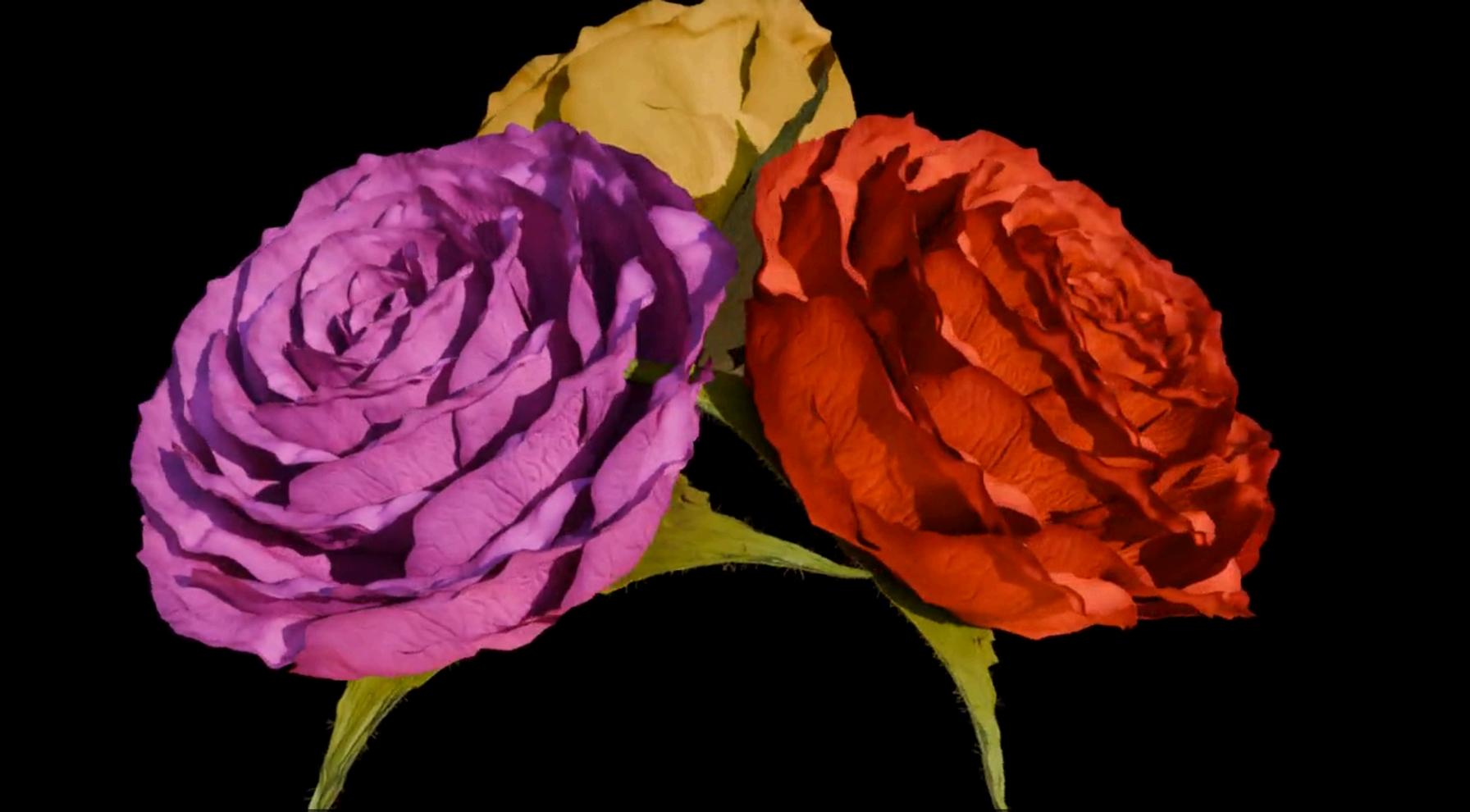



In 2025, we conducted our first alumni survey to understand the impact of the Next Lab (formerly Learning Futures / Immersive Creation Studio) experience on their educational and career journeys A total of 27 alumni responded to our survey In this section, we highlight their responses
ExecutiveSummary:
NextLab made a significant impact on students’ educational and career trajectories. Alumni now work in various roles, including UXdesign,game/ experiencedesign,animation,andeducation Key technical skills gained include UI/UX research, digital twins, game engines, and project management, alongside softskillssuch asleadership,teamwork,andfuturesthinking
Participants emphasized that the interdisciplinary, hands-on nature of Next Lab helped them explorenewtechnologies,broadentheirperspectives,developconfidence, and build strongindustryconnections Many cited the experience as pivotaltochoosingtheir careerpath, gaining clarity on their passions, and securing professional opportunities in competitive fields
What year(s) did you participate in Next Lab / Learning Futures / Immersive Creation Studio?
What was your primary area of study or focus when you joined Next Lab?
Leadership
Futures Thinking: “Through some of the workshops we had on futures thinking, the idea of designing with long-term impact in mind. It exposed me to strategic foresight and scenario planning. This has fundamentally shifted how I approach building products. Rather than designing just for present needs, I now think critically about the broader systems, potential futures, and how today's decisions can influence outcomes over time ”
What is your current professional role or area of focus?
DigitalTwins
AIEngineer
Co-founder/CTO
TechnicalConsultant
Student
SoftwareEngineer
Education
SoftwareDeveloper
Animation/Illustration
Product/Game/ExperienceDesigner
UXDesigner
What specific technical skills did you gain or improve through Next Lab?
CloudInfrastructure
AIandMachineLearning
DigitalStorytelling/Marketing
QA/Playtesting
TechnicalArtistry,Modeling,Animation&Concept
GameEngine DigitalTwins
UI/UX/UserResearch
ProjectManagement
How did Next Lab’s interdisciplinary nature contribute to your learning and professional growth?
“buildingprototypes, testingthem,andrefining throughtrialanderror,I grewmytechnicalskills significantly”
“taughtmehowtocollaborate acrossfieldsandcombine differentperspectivestocreate practical,creativesolutionsfor organizations”
“howtheUIdesignandUX researchprocessworks”
“[grewmy]skillsin softwareand game programming”
“workeddirectlywithnew technologiestoturn classroomideasintorealworldapplications”
“improvedmy3D modelingskills”
“howtocollaboratewithdifferent teammemberscomingfrom differentprofessional backgrounds”
“learnedaboutawide rangeofdisciplines,skills withinthosedisciplines, andgainedan understandingofhowall thosedisciplineswork together”
“gavemeexperiencein projectmanagement, networking,and communications”
“newapproachesto problem-solving”
“helpedme understandthe projectholistically”
“enhancedmyabilityto thinkfromdifferent perspectives...broadened myviewhowall[disciplines] canworktogethertodeliver thebestresults”
“Thediverseresources andfreedomtoexplore allowedmetotrylotsof thingsandfindtheright directionformyself”
“Sincethiswasmainlystudent-led,I hadtheopportunitytotake initiativeonhowtoimplement things,whichhashelpedme professionally”
“broadenedmy perspective”
Can you share a specific example of how Next Lab has impacted your career, project, or research?
“I made a VR game for my capstone project very similar to VR stuff I developed at Learning Futures ”
“With experience in Zoom and UI development for VR, I was able to explore new areas within the UX field ”
“I learned Blender through ASUniverse and FutureScape projects, and it helped me to teach others the program ”
“The cloud work I did at Next Lab may have been a factor in why I got a job and also the work has given me the motivation to pursue further cloud certifications from AWS ”
“With the VR content experience that Next Lab provided me, I was able to secure a position as the Lead 3D Artist We create VR experiences for classrooms and ASU Online, and the experience that Next Lab helped me cultivate directly helped me land this job ”
“furthered my interest in wantingtodesign games since it gave me hands-onexperience” ...working here encouraged me to pursuemy Master’sinEducation. I really enjoyed being on projects for immersiveandgamifiedlearning”
“Next Lab was the reason I pursuedmy Master’s degree in ExtendedReality Technologies”
“Next Lab connected me with worldclass companies and organizations The portfolio of projects we created led to interesting talking points in interviews...This landed me jobs working on designing semiconductor manufacturing plants, and in creating digital twins for entertainment projects at stadiums, arenas, convention centers, and various UNESCO world heritage sites ”
“provided practical experience with product development cycles and tools, allowing me to understand how to use tools that were similar to Trello and Miro”
“served as a valuable internship that gave me real work experience in college” “helped me grow my soft skills. I had the opportunity to present our work at the ASU Sustainability Summit, which really pushed me to hone my communication and presentation abilities It gave me more confidence presenting to large audiences, a skill that’s been incredibly valuable in my career thus far ”
enhanced my communication, teamwork, and leadership: ★★★★★ helped me develop futures thinking, critical thinking or problem-solving skills:★★★★★ prepared me well for the rapidly changing technological landscape:★★★★★ enhanced my understanding of my major or professional field:★★★★
Looking back, what is the single most valuable thing you gained from your experience at Next Lab?
Unity debugging AWS Blender 3D Modeling overall software design process experience with new technologies
“Income”
“It was my first work experience so I learned about working in interdisciplinary teams and overall software design process ”
“exposure to emerging and immersive technologies. Before Next Lab, I knew very little about AR/VR, game development or AI. But the experience opened up those worlds for me and sparked a new curiosity that’s now shaping my future projects. “mentorship from the leadership team”
“the friends I made”
“meeting cool and talented people”
teamwork, working in interdisciplinary teams public speaking leadership, leading a team of creatives project management experience in a higher-level managerial role creativity problem-solving
“[Next Lab] helped me to think creatively and out of the box when looking for solutions. Encouraged me to dream big and come up with the best ideas possible for the solution and then filter it according to the skills and tools available And the best thing is that this exercise could be applied to any discipline and any field ”
“The most valuable thing I gained from Next Lab is definitely the confidence that I have chosen the right path for myself Without the freedom that Next Lab provided me to explore different areas, I think I would be a lot less sure I was working in the right field.”

